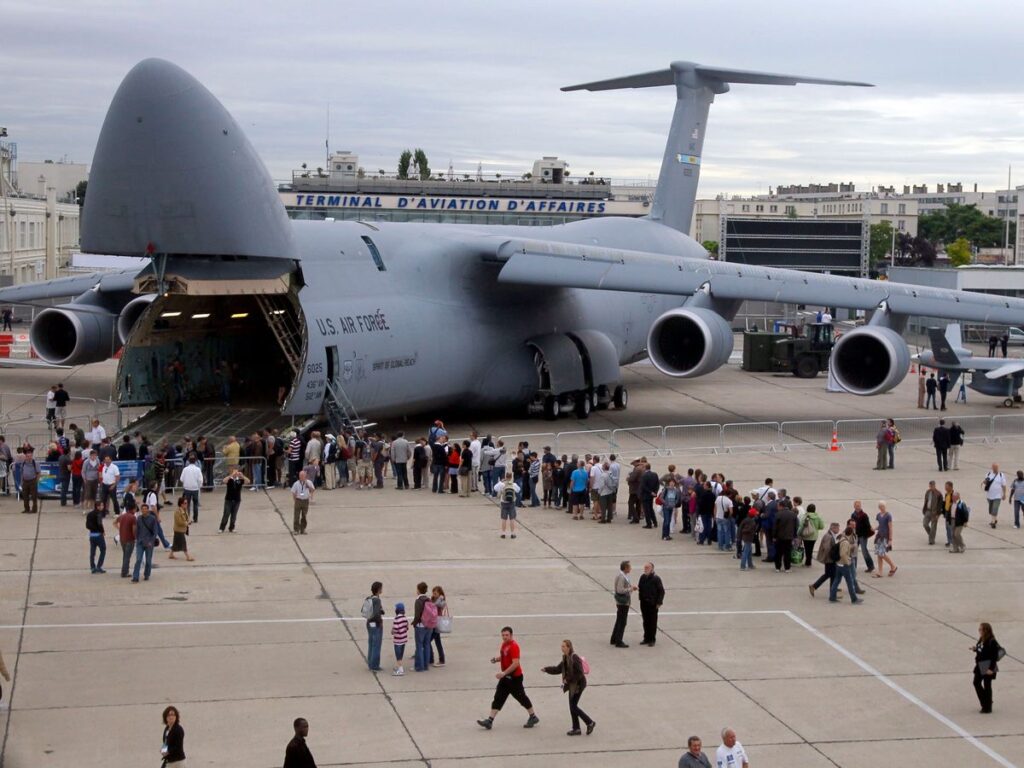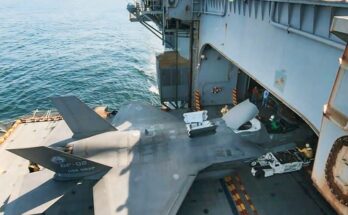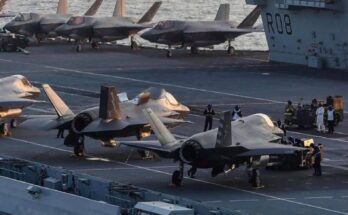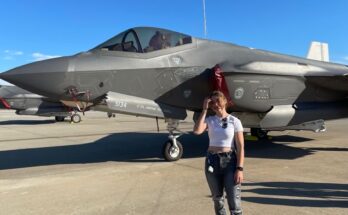
Air Mobility Command has grounded the C-5 Galaxy cargo planes operating at Dover Air Force Base in Delaware after a nose landing-gear unit malfunctioned for the second time in 60 days
Air Mobility Command (AMC) has temporarily grounded the fleet of C-5M Super Galaxy cargo planes stationed at Dover Air Force Base in Delaware following a second nose landing-gear malfunction in less than two months. The precautionary move highlights the Air Force’s focus on both flight safety and the readiness of its largest and most capable transport aircraft.
The grounding comes after a C-5 experienced an issue with its nose landing-gear assembly during operations at Dover. A similar malfunction had been reported just 60 days earlier, raising concerns about potential systemic issues affecting the reliability of the gear system. While no injuries occurred in either incident, Air Force officials emphasized the importance of addressing the problem before allowing the aircraft to resume regular flight schedules.
The C-5 Galaxy has been the backbone of America’s strategic airlift capability since its introduction in the early 1970s. With a payload capacity exceeding 280,000 pounds, the aircraft can carry oversized equipment such as tanks, helicopters, and satellites, making it indispensable for global military operations. The updated C-5M Super Galaxy, which makes up Dover’s fleet, features modern engines and avionics upgrades designed to extend its service life into the 2040s.
For AMC, which oversees the bulk of the Air Force’s mobility operations, the decision to temporarily halt flights underscores a cautious approach. A command spokesperson stated that maintenance and engineering teams are conducting detailed inspections of all nose landing-gear components to determine whether the malfunctions stem from isolated mechanical failures, wear and tear, or a broader design issue. Until a root cause is identified, the aircraft will remain grounded at Dover.
Dover Air Force Base is home to the largest concentration of C-5 aircraft in the world, serving as a critical hub for strategic airlift missions. The grounding is expected to affect scheduling in the short term, but AMC has indicated that other aircraft, including the C-17 Globemaster III, are available to pick up some of the workload. While the C-17 is smaller, it remains capable of handling many of the missions typically assigned to the C-5.
Grounding actions of this type are not unprecedented in military aviation. When mechanical or safety issues arise, the Air Force has historically taken decisive measures to ensure aircrew safety and preserve its assets. Analysts note that while the temporary stand-down may inconvenience operational planning, the long-term priority is ensuring that one of the military’s most critical airlift platforms remains both safe and reliable.
The C-5 fleet has undergone extensive modernization in recent years, including upgrades to extend airframe life and improve performance. However, its sheer size and complexity make maintenance an ongoing challenge. Landing gear systems in particular endure enormous stress during operations, and even minor malfunctions can have serious consequences if left unresolved.
For now, Dover’s Super Galaxies will stay on the ground while investigators complete their review. AMC has not provided a timeline for resuming flights, but officials have stressed that safety will dictate the pace. The resolution of this issue will be closely watched, given the C-5’s importance to global mobility and its role in supporting U.S. military operations worldwide.


